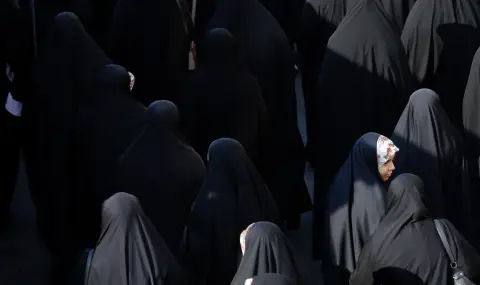The number of executions in Iran reached an alarmingly high level in 2024. According to the Iranian Organization for Human Rights (IOHR) and the French NGO "Together Against the Death Penalty", at least 975 people were executed - the highest number in more than 20 years.
"The death penalty is at the heart of many human rights violations in Iran. It serves as an instrument of oppression and intimidation in society," explains Mahmoud Amiri-Moghadam, head of the Norway-based IOHR. The death penalty is imposed not only for serious crimes such as premeditated murder, but also for killings committed in self-defense. It is also being applied increasingly to political activists. "The regime has taken advantage of the lack of international attention to carry out as many executions as possible," says Amiri-Moghadam. This was particularly evident in the last three months of last year, when tensions between Iran and Israel increased: up to six people were executed every day during that time.
The UN has also expressed concern. "The high number of executions in Iran is deeply disturbing," warned the UN High Commissioner for Human Rights, Volker Türk, in late January. His committee said that in one week in December alone, about 40 people were executed.
The number of women executed has reached its highest level since 2007, with 31 cases. Some of the women executed killed their husbands to protect themselves from rape or after being forced into marriage. One of the women killed her husband to protect her daughter from sexual abuse, said Liz Trossell, a spokeswoman for the UN Human Rights Committee.
Human rights activists demand abolition of the death penalty
Popular human rights activists such as Iranian Nobel Peace Prize laureate Narges Mohammadi have repeatedly protested against the increasing number of executions. On February 19, activists also gathered outside Tehran's Evin prison to express their solidarity with prisoners who protest against the death penalty every week. A few months ago, the prisoners launched their "Tuesdays Without Executions" initiative.
Mahmoud Amiri-Moghadam describes this movement as a major social change: "For the first time in the history of Iran, prisoners are leading a protest movement against the death penalty. This could be the beginning of a larger social movement." In addition to Narges Mohammadi, other prominent Iranian human rights defenders took part in the protests, such as lawyer Sedighe Vasmanghi, who sharply criticized the death sentences against political prisoners: "These sentences are clearly a form of revenge against the "Women, Life, Freedom" protest movement, she said.
In an open letter to the head of the judiciary, 228 Iranian lawyers also criticized the trials of activists Pakshan Azizi, Varishe Moradi, and Sharifeh Mohammadi as grossly unfair. The three women were arrested for participating in political protests and sentenced to death in summary proceedings. In the letter, the signatories emphasize that they are acting not only as lawyers, but also out of human responsibility: "These sentences not only violate Islamic and humanitarian values, but also Iran's international obligations regarding the right to life and a fair trial".
Diplomatic pressure is needed
The Iranian Human Rights Organization (IHRO) and the French NGO "Together Against the Death Penalty" are appealing to the international community to place the death penalty in Iran at the center of diplomatic talks. "Liberal democratic states must condemn this wave of executions and support the growing resistance in Iran against the death penalty. "Short-term and long-term ways of putting pressure on the Iranian government to make legal changes must be found," says Amiri-Moghadam.
The high number of executions for drug-related crimes is also a cause for concern: Of the 975 executions in 2024, 503, or more than half, were of people convicted of drug-related crimes. Despite this worrying development, the United Nations Office on Drugs and Crime continues to work with the Iranian authorities. Human rights groups are calling on the UN to step up its efforts to ensure that drug-related crimes are no longer punishable by death, or to end its cooperation with the Islamic Republic.
Author: Shabnam von Hein
